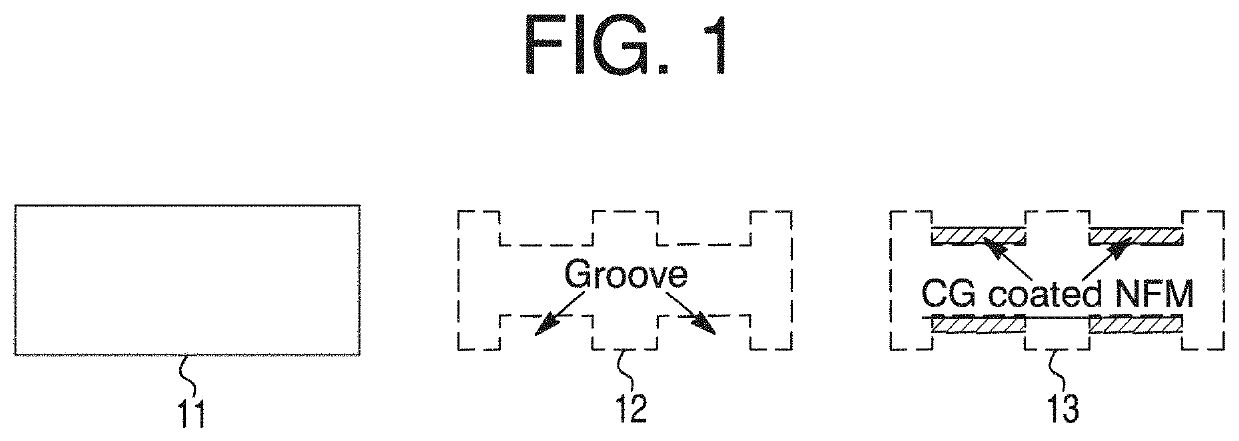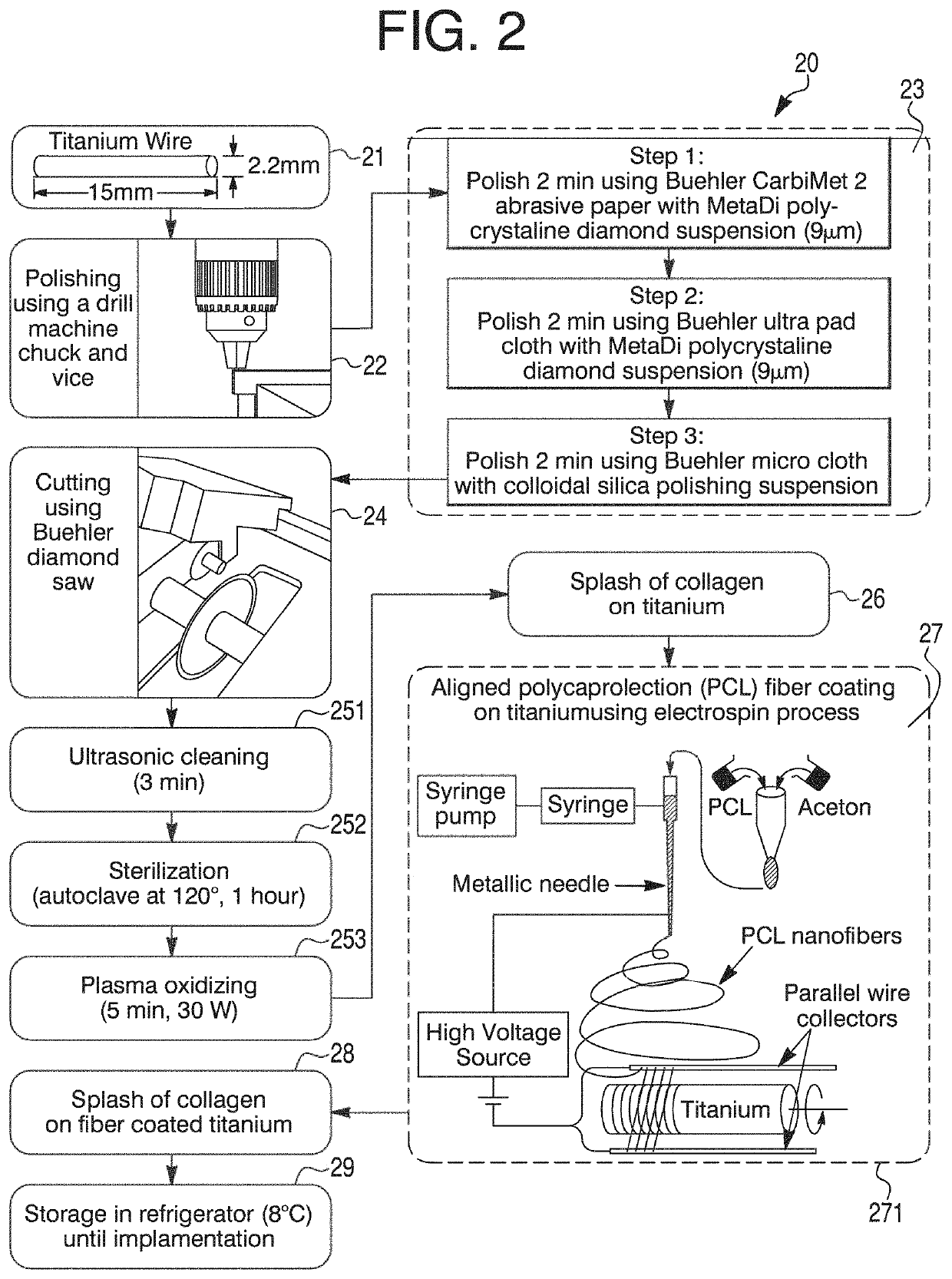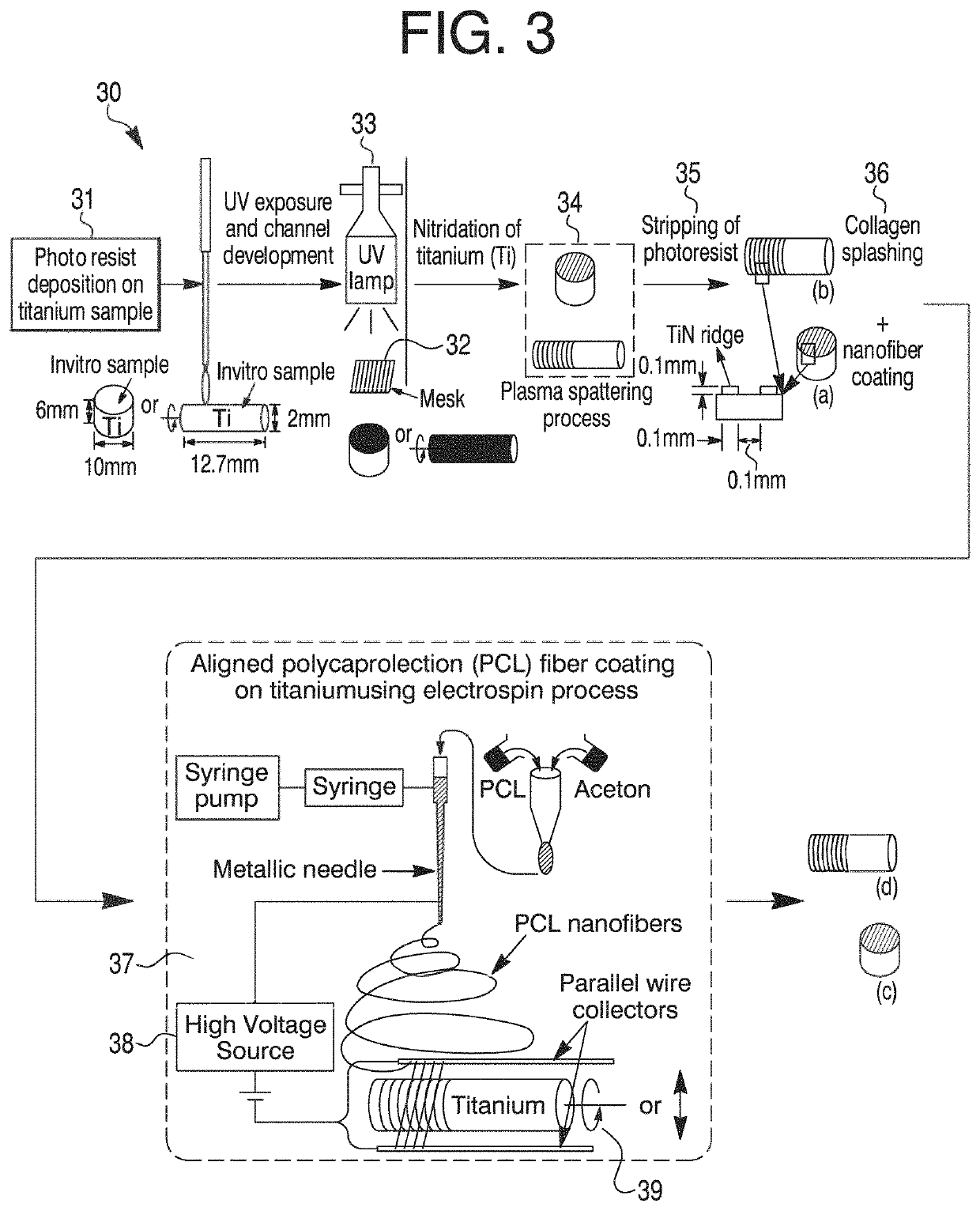Nanofiber coating to improve biological and mechanical performance of joint prosthesis
a technology of nanofibers and prosthesis, applied in the field of polymer fiber production, can solve the problems of coating detachment and toxicity of related debris, and achieve the effects of improving osseointegration, enhancing osteoinductive properties, and increasing osseointegration
- Summary
- Abstract
- Description
- Claims
- Application Information
AI Technical Summary
Benefits of technology
Problems solved by technology
Method used
Image
Examples
Embodiment Construction
"d_n">[0065]Referring now to FIG. 1, a non-limiting diagram shows schematic images of a longitudinal cross-section of a Ti rod without grooves 11, with circumferential grooves 12, and with circumferential grooves and nanofiber matrix (NFM) applied 13. The process of the present invention provides a method for controlled fabrication of microgrooves 12 around the circumference of a Ti implant 11. The present invention provides techniques to attach ENF fibers to an implant surface as shown positioned within the groves 13.
[0066]Referring now to FIG. 2, a non-limiting diagram shows the process of the present invention providing a method 20 for coating a metal implant with electrospun nanofiber, and includes a set of steps (shown in block diagram) by which PCL ENF can be bonded with the metal implant [See FIG. 8, 83]. Briefly, a Ti implant 21 (e.g., 2.2 mm×15 mm wire) may be polished using a drill machine chuck and gripper 22. Other functionally equivalent rotating devices may be used. A ...
PUM
| Property | Measurement | Unit |
|---|---|---|
| thickness | aaaaa | aaaaa |
| depth | aaaaa | aaaaa |
| thickness | aaaaa | aaaaa |
Abstract
Description
Claims
Application Information
 Login to View More
Login to View More - R&D
- Intellectual Property
- Life Sciences
- Materials
- Tech Scout
- Unparalleled Data Quality
- Higher Quality Content
- 60% Fewer Hallucinations
Browse by: Latest US Patents, China's latest patents, Technical Efficacy Thesaurus, Application Domain, Technology Topic, Popular Technical Reports.
© 2025 PatSnap. All rights reserved.Legal|Privacy policy|Modern Slavery Act Transparency Statement|Sitemap|About US| Contact US: help@patsnap.com



